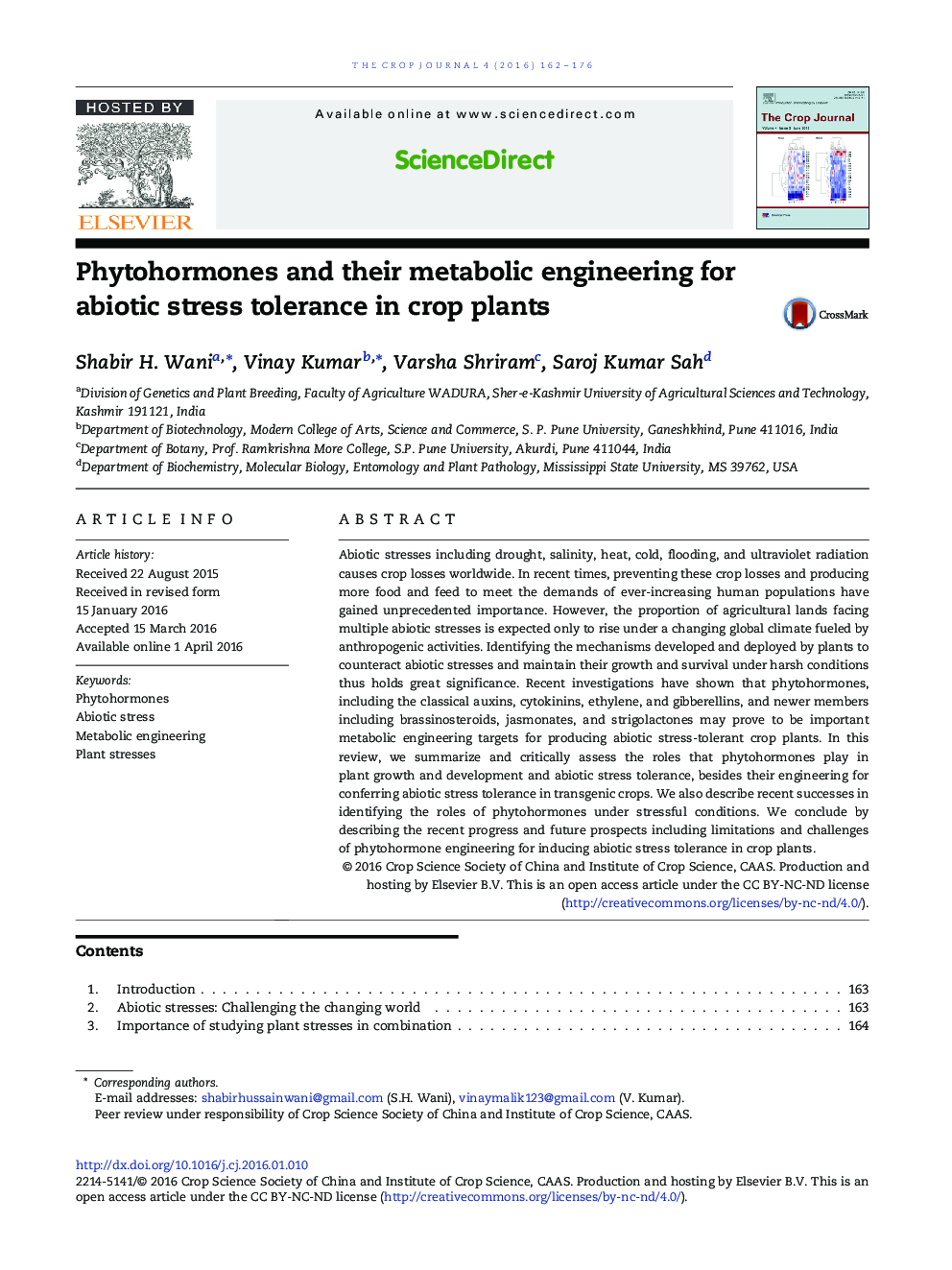| کد مقاله | کد نشریه | سال انتشار | مقاله انگلیسی | نسخه تمام متن |
|---|---|---|---|---|
| 2079413 | 1079867 | 2016 | 15 صفحه PDF | دانلود رایگان |

Abiotic stresses including drought, salinity, heat, cold, flooding, and ultraviolet radiation causes crop losses worldwide. In recent times, preventing these crop losses and producing more food and feed to meet the demands of ever-increasing human populations have gained unprecedented importance. However, the proportion of agricultural lands facing multiple abiotic stresses is expected only to rise under a changing global climate fueled by anthropogenic activities. Identifying the mechanisms developed and deployed by plants to counteract abiotic stresses and maintain their growth and survival under harsh conditions thus holds great significance. Recent investigations have shown that phytohormones, including the classical auxins, cytokinins, ethylene, and gibberellins, and newer members including brassinosteroids, jasmonates, and strigolactones may prove to be important metabolic engineering targets for producing abiotic stress-tolerant crop plants. In this review, we summarize and critically assess the roles that phytohormones play in plant growth and development and abiotic stress tolerance, besides their engineering for conferring abiotic stress tolerance in transgenic crops. We also describe recent successes in identifying the roles of phytohormones under stressful conditions. We conclude by describing the recent progress and future prospects including limitations and challenges of phytohormone engineering for inducing abiotic stress tolerance in crop plants.
Journal: The Crop Journal - Volume 4, Issue 3, June 2016, Pages 162–176